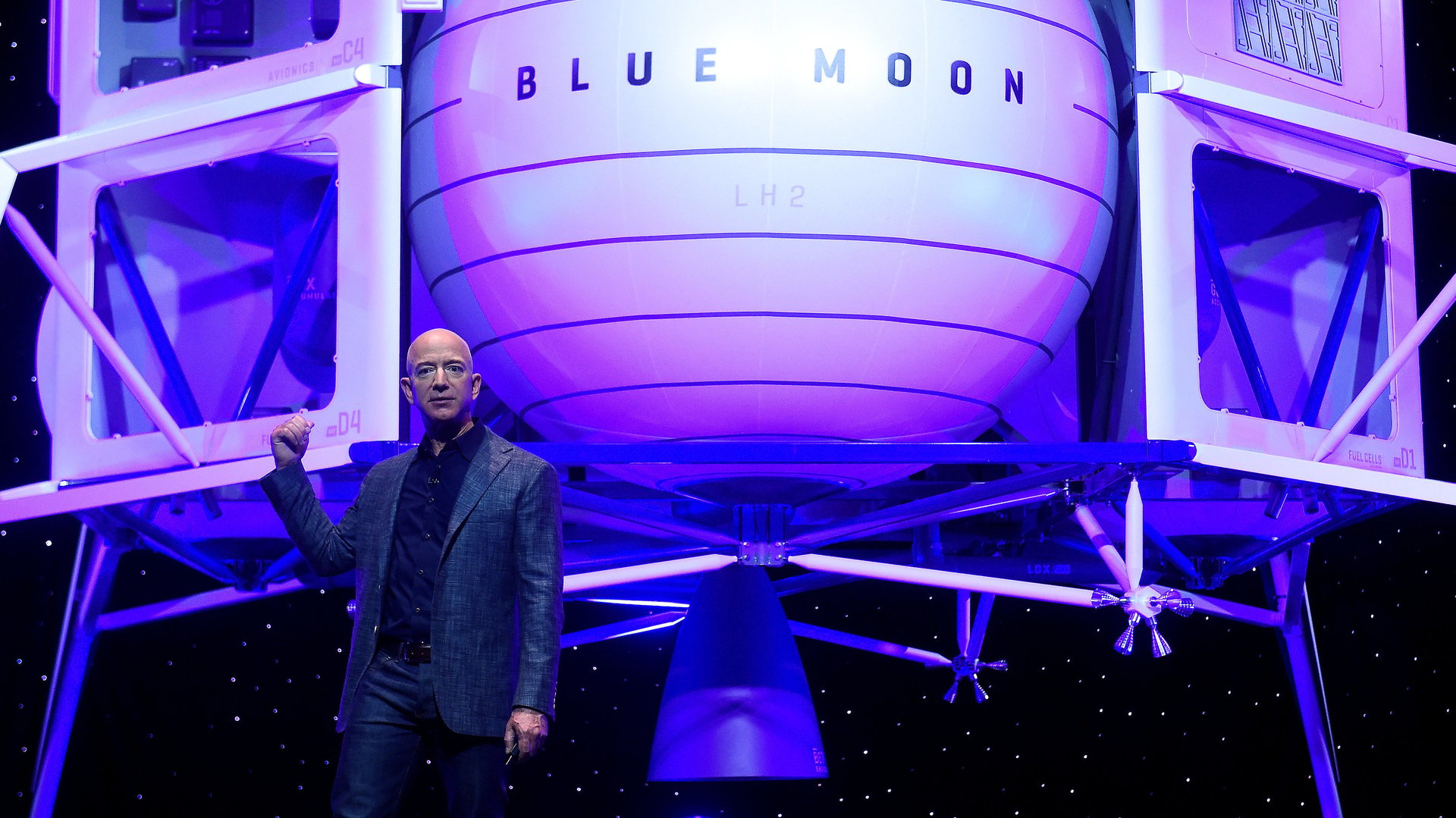Amazon’s most lucrative business is headed to space
Amazon Web Services’ network of satellite antennae is now coming online, bringing the internet company’s formidable cloud computing business into the space age.


Amazon Web Services’ network of satellite antennae is now coming online, bringing the internet company’s formidable cloud computing business into the space age.
In 2018, Amazon made more money selling “compute”—access to a virtually infinite network of servers and processing power—than goods on its flagship retail website. Cloud computing services—also marketed by Google and Microsoft—are utilized by all kinds of digital businesses, but one sector that has benefitted enormously are users of Earth-observing spacecraft.
Academics used to fighting over university supercomputers found themselves able to perform machine learning analyses dramatically faster thanks to the economies of scale afforded by the massive internet companies. Another early market: Government intelligence agencies that process satellite imagery gathered by dozens of spacecraft orbiting the Earth.
“Almost every satellite company I’ve worked with tends to process and put their data into [Amazon Web Services],” said Shayn Hawthorne, a former US Air Force officer and defense contractor who worked with Amazon’s most security conscious customers, including those in the intelligence community. “Why don’t we just get rid of the bumps in the line, make it really easy to get the data into AWS?”
Hawthorne is now the general manager of Amazon Web Services Ground Station, tasked with solving that problem. Today, eight private satellite operators and an undisclosed number of government agencies are using the service, which came online with two ground stations last week. Ten more are expected to open this year across the globe, with the goal of giving customers access to their satellites every 25 to 35 minutes.
While out-sourcing the job of building and maintaining satellite ground stations isn’t a new idea, the combination with what is arguably the world’s largest private computer network is an attractive offering. As billions of dollars pours into new networks of communications and remote-sensing spacecraft, Amazon is positioned to secure a large chunk of a growing market.
“One of the biggest bottlenecks is the latency and the reactivity,” said Payam Banazadeh, the CEO of Capella Space, one of Amazon’s first ground station customers. He says that current SAR satellites systems take about eight hours to turn around a request to examine a certain area of the planet.
“Ideally, you are living in a world where there are so many ground stations everywhere…10 minutes after you’ve collected, you dump that data through the ground station, ideally really close by to your data center,” Banazadeh says. “With AWS we’re getting one step closer to that reality.”
Capella, backed by venture capital investors, launched the first US commercial synthetic aperture radar (SAR) satellite this year, paving the way for a 36-spacecraft constellation the company expects to complete in 2022. Capella’s satellites pull in a gigabit of data per second during each 10-minute sensing pass over the earth, so bringing it all to Earth and into AWS is a significant task.
Amazon says it will charge between $3 and $22 per minute of communication, depending on how much bandwidth and advanced notice are necessary. D-Orbit, Maxar Technologies, Myriota, NSLComm, Open Cosmos, Spire, and Thales Alenia Space are among the other early adopters of the new service.
Building out the technical infrastructure to connect with satellites isn’t the only challenge for Amazon, which must also navigate the complex regulatory permissions required by telecom regulators for communicating with orbiting spacecraft. Each country has its own process, and the internet giant expects to operate from at least half a dozen different jurisdictions.
Amazon is also building out its own network of telecommunications satellite in a separate project called Kuiper, while founder Jeff Bezos is the prime mover behind Blue Origin, an important rocket-making start-up.